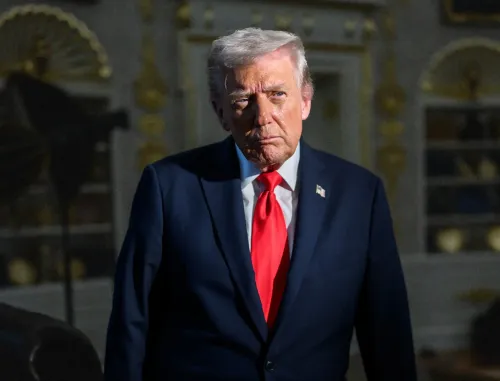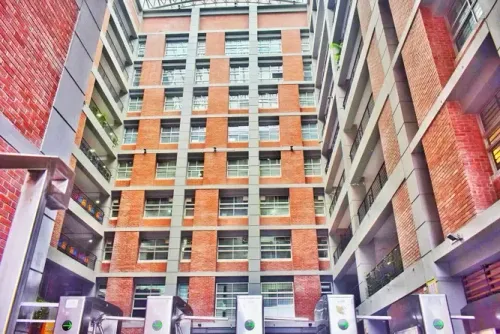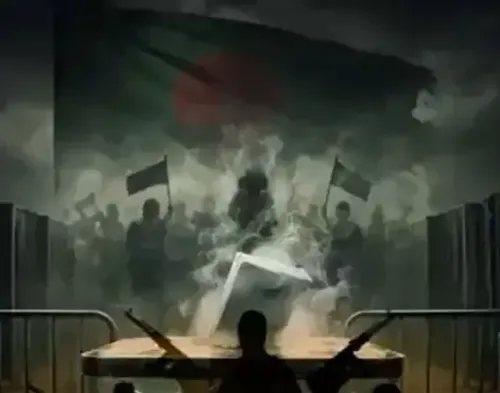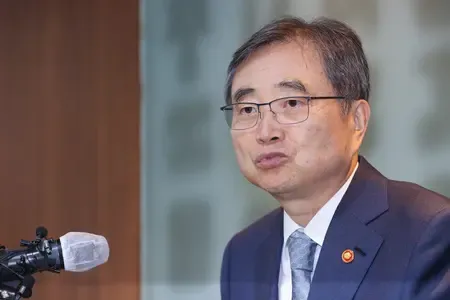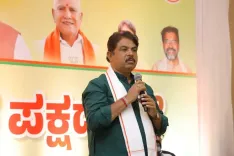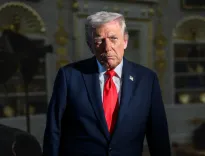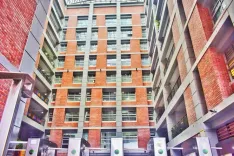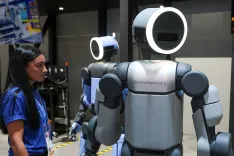South Korea: Yoon Appears in Court to Challenge Arrest Over Martial Law Initiative

Synopsis
Key Takeaways
- Yoon Suk Yeol challenges arrest in court.
- Martial law declaration led to political crisis.
- First sitting president to face arrest.
- Legal team argues against the legitimacy of charges.
- Constitutional Court considering impeachment outcome.
Seoul, Jan 18 (NationPress) The impeached President of South Korea, Yoon Suk Yeol, made an appearance at a hearing in a Seoul court on Saturday to contest his possible formal arrest linked to his brief martial law declaration from last month, according to his legal representatives.
Yoon has been detained since his arrest on Wednesday at his residence, facing accusations of orchestrating an insurrection and abusing his power, marking the first time a sitting South Korean president has been apprehended.
The session at the Seoul Western District Court occurred shortly after the Corruption Investigation Office for High-Ranking Officials (CIO), in collaboration with police and military forces, sought a warrant for Yoon's formal arrest.
Yoon was transported from the detention center located in Uiwang, approximately 20 kilometers south of Seoul, in a blue van under police and Presidential Security Service escort.
The convoy circumvented the designated media photo area, entering the courthouse directly, while thousands of supporters gathered outside, brandishing South Korean and US flags and chanting Yoon's name in a show of support.
Yoon opted to attend the court session to articulate the validity of his martial law declaration and to rehabilitate his damaged reputation, as stated by his lawyer Yoon Gap-keun in a message to reporters.
Since being detained, Yoon has declined to participate in questioning regarding his martial law initiative. The announcement made on December 3 took the nation by surprise, plunging South Korea into a severe political crisis. Nevertheless, the martial law lasted only a few hours before lawmakers voted to rescind it, as reported by Yonhap news agency.
During the hearing that commenced at 2 p.m., Yoon is anticipated to categorically deny the insurrection allegations against him. He is also expected to argue that his arrest is unwarranted since investigators have already gathered substantial evidence and that he poses no flight risk as he is the sitting president.
His legal team has asserted that the martial law declaration was a governance measure and should not be subject to judicial review, as it was enacted to address a national crisis caused by the opposition-led impeachments of Cabinet members, legislative deadlock, and unilateral budget cuts.
Yoon's presidential powers were suspended following a vote by the opposition-dominated assembly to impeach him on December 14.
On Wednesday, Yoon's defense team requested the Seoul Central District Court to rule on the legality of the detention warrant issued by the Western District Court.
However, the central court rejected the request the following day, keeping him in custody.
Despite this ruling, Yoon's legal representatives are likely to maintain their stance that the CIO lacks the legal authority to investigate insurrection charges and that the Western Court does not have proper jurisdiction over the martial law case.
The judge at the Seoul Western District Court is expected to reach a decision as early as late Saturday or early Sunday.
If the court issues the warrant, Yoon will become the first sitting president in South Korea's constitutional history to be formally arrested.
A formal arrest would enable investigators to extend his detention for up to 20 days, during which the case would be handed over to prosecutors for possible indictment.
If the request is denied, the beleaguered president will be released and return home, reinforcing his claims that the ongoing investigations into his martial law declaration and impeachment are baseless.
Meanwhile, the Constitutional Court is deliberating on whether to uphold the parliament's impeachment decision or reinstate Yoon.


